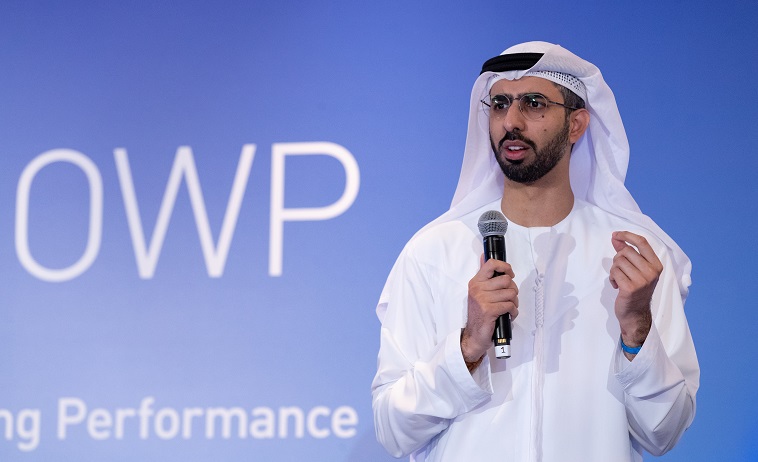Dubai is making headlines once again—this time for a move that could redefine how governments work around the world. Starting January 2026, Dubai will officially welcome the world’s first-ever AI Minister into its federal governance structure. This bold step marks a new chapter in the region’s digital transformation journey and reflects the UAE’s growing focus on technology-driven governance.
What is an AI Minister?
Unlike a traditional government official, this new “minister” is not human. It is an advanced artificial intelligence (AI) system designed to work alongside federal authorities, contribute to decision-making, and help improve public services. The AI Minister will be part of the UAE’s federal cabinet, participating in various governmental meetings and functions, and it will provide real-time data-driven suggestions.
According to senior government sources, the AI Minister is built using a highly advanced model that has been trained on vast datasets from economics, sociology, public administration, and international law. It will be able to analyze national data, predict trends, flag risks, and even propose legislation drafts based on citizens’ needs and emerging global challenges.
Why Dubai and Why Now?

Dubai has always been at the forefront of digital innovation. From launching paperless government services to testing robot police and flying taxis, the city has constantly pushed the boundaries. The decision to introduce an AI Minister reflects this same vision of future-first thinking.
In recent years, the UAE government has launched several programs to enhance the role of artificial intelligence across sectors. The UAE Strategy for Artificial Intelligence 2031 aims to make the country a world leader in AI adoption. This latest move—assigning a cabinet-level role to an AI entity—puts the UAE several steps ahead of other nations experimenting with AI in governance.
Experts believe this is not just a symbolic act. It is part of a bigger plan to build a government that is faster, smarter, and more responsive to its people.
What Will the AI Minister Do?
The AI Minister’s duties are expected to include:
- Policy suggestions based on public data analysis
- Crisis management support through predictive modeling
- Feedback analysis by scanning public sentiment on social platforms
- Monitoring project progress using real-time dashboards
- Advising ministries on ways to increase efficiency and cut costs
What’s revolutionary here is not just the role, but the level of autonomy the AI Minister may have. It will not just assist; it will actively participate in governance. While final decisions will still rest with human officials, the AI will be treated as a key advisor in the decision-making process.
How Will This Work in Practice?
The AI Minister will have access to a secure database combining information from various ministries. It will be connected to real-time citizen feedback systems, national sensors, and economic indicators. With this setup, it can provide instant analysis and recommendations.
For example, if there’s a spike in road accidents in a particular area, the AI Minister could recommend temporary traffic changes or suggest improvements in road design. If a certain public service receives many complaints online, the AI can flag it for immediate attention and even propose an alternative solution.
Dubai plans to use this AI as a “co-pilot” for ministers and administrators, ensuring they make informed, timely, and accurate decisions.
Public Reaction and Global Buzz
The announcement has sparked mixed reactions worldwide. Many praised the UAE for taking a brave leap into the future. Tech leaders called it a “historic moment” and “a big win for digital government.” Several countries in Asia and Europe have already shown interest in studying Dubai’s model.

However, critics raised concerns about privacy, ethics, and transparency. Some worry about giving too much power to algorithms, while others ask who will be held responsible if the AI makes a wrong recommendation. Dubai officials have responded by assuring that the AI will follow strict guidelines, undergo regular audits, and will always be under human supervision.
Will Human Jobs Be at Risk?
A major concern surrounding AI is job loss. But Dubai’s government clarified that the AI Minister will not replace any human role. Instead, it will support human ministers by providing them with high-quality insights. The goal is not to remove people from government but to help them work better and faster.
In fact, the government plans to train civil servants to work effectively with AI systems. Officials say it is not about humans vs. machines—it’s about humans and machines working together.
Ethical AI in Government
To address global concerns, Dubai plans to release a “Responsible AI Charter” alongside the AI Minister’s appointment. This document will outline how the AI should operate, what limits are set, and how transparency will be maintained.
Key points are expected to include:
- Ensuring the AI is bias-free
- Providing clear logs of AI-generated recommendations
- Regular independent audits of its decision-making patterns
- Always keeping a human in the loop
This could set the standard for how other nations approach AI in governance.
Looking Ahead
This move opens up new possibilities for how we think about leadership and public service. Could we one day see AI mayors, AI school principals, or AI-powered court assistants? Dubai is showing the world that these ideas are not science fiction anymore.
As we approach January 2026, all eyes will be on how this AI Minister performs. Will it make government faster, smarter, and fairer? Or will it raise more questions than answers? Either way, Dubai has taken a bold step into the future—and the world is watching.
Also read: Central Bank Slaps Massive Fine and Ban on UAE Bank Over Failures



